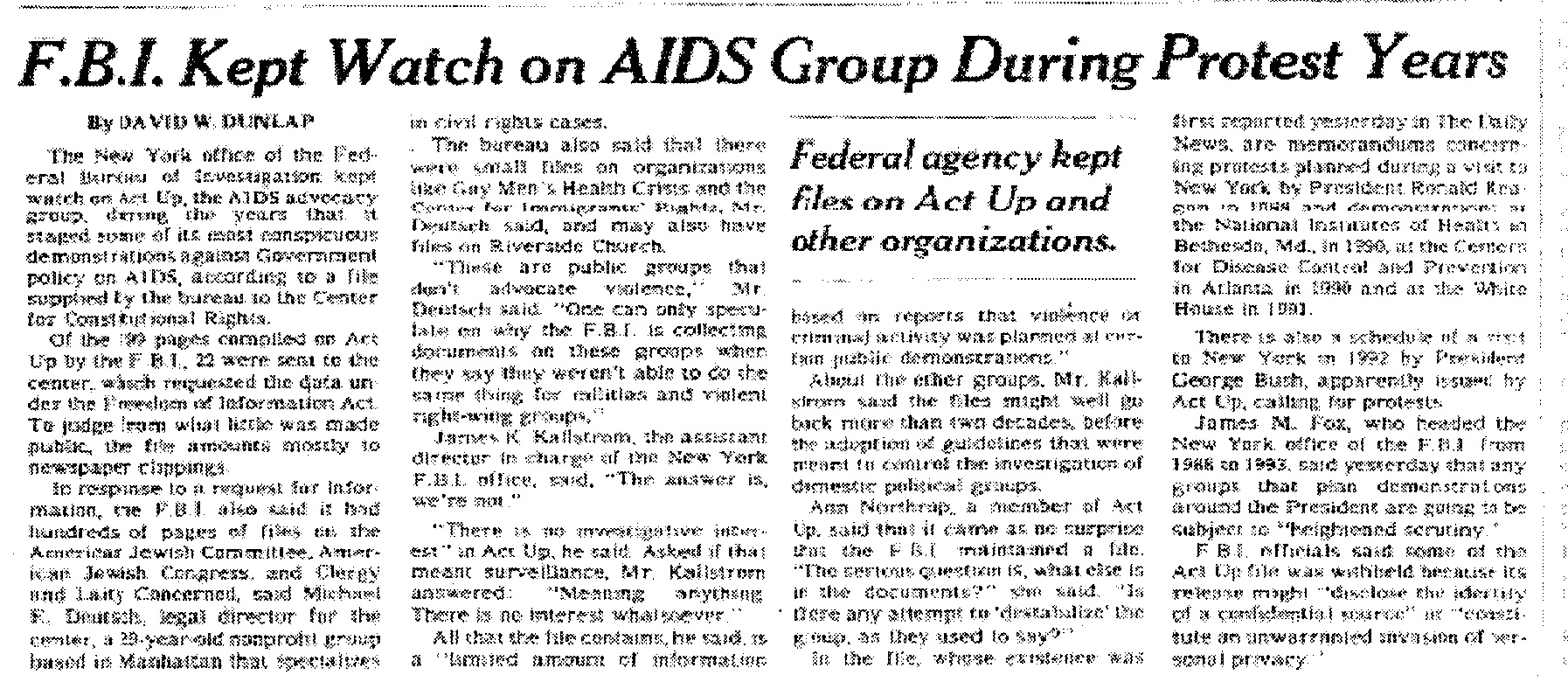LITIGATING FOIA
This is not a FOIA litigation guide, but here are some basic considerations for what to do when thinking about a request that may lead to litigation. You will need an attorney to litigate your FOIA in court, but it is critical not only that the attorneys understand how FOIA litigation generally works, but that the non-attorneys on your team – activists, organizers, community groups – be involved in the FOIA litigation. This type of litigation will be the most successful if the strategy is led by the groups and individuals who have made the request and who have the best understanding of what information they are seeking to get from the request.
Considerations before litigation
-
Finding an attorney
Litigating your request in federal court means that if you aren’t an attorney, you will need to find one to represent you. Unfortunately, the Center for Constitutional Rights does not have the capacity to litigate all the amazing FOIA requests our partners file. We are working on training more attorneys to litigate these requests.
Because it can often be hard to find an attorney willing to litigate a FOIA request “pro bono,” which means for free, we highly recommend finding an attorney early on in the process of filing your request so that you aren’t scrambling to locate one later. Attorneys can also get fees if they are successful litigating a FOIA, which could be helpful in retaining a lawyer.
-
Exhaustion
In almost all cases, you must first have “exhausted” the administrative process of FOIA. This means you must have gone through the process of getting a response from the government agency and then appealing the decisions of the agency. You cannot ask for a fee waiver or certain kinds of documents for the first time in federal court; everything that you seek in federal court needs to have appeared first in your initial request to the agency(s). -
Length of time
As we mentioned earlier, litigation can take time. There are some strategies lawyers can use to move a case along, but ultimately the judge assigned to your case will decide how quickly the process will go. It will usually take at least several months for you to begin receiving documents, and could take more than a year to receive most or all of the documents you request. In addition, you could receive many documents sooner but in redacted form, and so you would need to go back to court and litigate whether you can get unredacted versions of those documents. -
This slow process of litigation can be a problem for campaigns that might need documents quickly
This is why filing narrow, targeted FOIA requests can be more strategic, since it makes it harder for the government to argue that it will take them a long time to produce a small number of records, and also makes your request appear more sympathetic in front of a judge. -
Litigation and movement priorities
For FOIA to be an effective movement support tool, it is critical that the lawyers you work with center you or your organization’s objectives in the litigation strategy. You should decide which documents you think are important to prioritize once you go to court. Make sure to be in consistent, clear contact with your attorney.
Make sure you or your organization have final say in making decisions on the direction of the case. Let them know if there are demands you want them to push for, and what you are willing, or aren’t willing, to give up in any negotiations with the government agencies. Make sure they answer any questions you have about the legal process.
If you are able, come to court for any proceedings before the judge and take notes on what happens there.
Finally, be creative about using any litigation moments for your advocacy! An agency’s refusal to turn over documents might be a great media or organizing hook in itself. Or the government might file a legal brief or declaration that reveals information you want to highlight to your membership.

Basic components of FOIA litigation
Litigation can involve some or all of the following:
- Negotiating with government attorneys who represent the agencies on which documents are most important to you, and setting the order in which documents are produced to you, and other process issues.
- Seeking a court order requiring the agency to produce records to you on a specific schedule. For example, a judge could order a certain number of documents or pages per month.
- Challenging redactions made by government agencies in documents you received. For example, you can ask a court to “un-redact” parts of a document because the government did not provide a good enough reason for concealing the information.
- Challenging the “adequacy” of an agency’s search for documents responsive to your request. For example, you can ask a court to order an agency to re-do a search, or search other agency offices or the files of agency personnel that hadn’t been searched earlier.
- Negotiating the settlement of a case in which you receive key documents in exchange for not receiving others that might be old or of lesser priority.